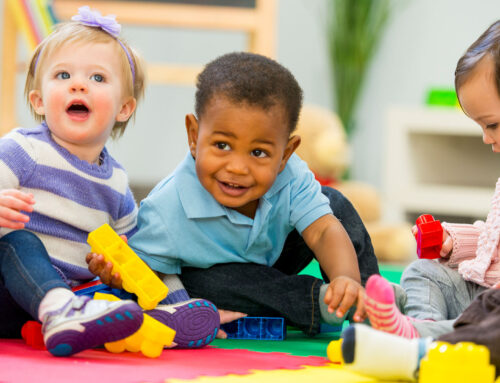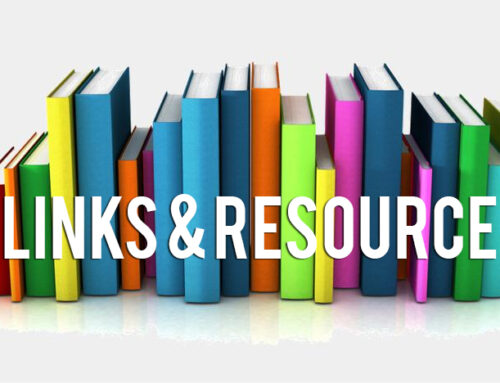HOW TO USE TIME IN QUARANTINE TO MAKE YOUR LIFE BETTER
By: Shenee Omuso, MAT, MA, CCC-SLP
TOL EDUCATION DEPARTMENT DIRECTOR
This period of quarantine has been filled with mixed emotions for many. Some may be using this time to rest, spend more time with family, start a business or get in their best physical condition. Others are simply going “stir crazy”. No matter what you may have chosen to focus on, many would agree that this time has been a true RESET. Prior to this time in quarantine, I remember thinking that life was speeding way too fast, and it was easy for me to feel like I was out of control of my life. As a wife, mother, speech therapist, non-profit director, business woman, youth program instructor, daughter to older parents, mentor and educational consultant, there just wasn’t “enough time in the day”. I watched myself “go through the motions” of life, putting out fires here and there, reactive instead of proactive. This is not to say that in the future, I won’t experience these feelings. However, the question becomes how do we better equip ourselves to deal with these feelings better each time? Our hope is to reduce the depression, sadness, fear and overwhelming anxiety we feel, rebounding quicker, stronger and wiser each time. So in this article we will explore how we can use quarantine to make our life better as we emerge from this time.
The question is how would you define “better”? For all intents and purposes of this article, let’s define better as improved overall mental, emotional, social, physical and spiritual health. “Better” releases you from the pressure of performance/results and allows you to concentrate on whatever better means for you, even if change is seemingly small. Let’s look at some specific guiding principles we can use to maximize this time.
FOCUS ON THE IDEA OF “FRUITFULNESS” INSTEAD OF “PRODUCTIVITY”:
One of the most impactful, liberating words I have ever received was that we are human beings, not human doings. This means that we were not born to simply be driven by doing, moving, running here or there or “grinding”. The danger with this thinking is that we begin to define ourselves by how active (or inactive we are). If we are not staying up all night working, running errands, attending fourteen meetings in one day that are not lives are not full, meaningful or we are not being productive. With the added comparison tool and confidence killer known as social media, we are able to measure how unfulfilled our lives seem.
The fact is that during this quarantine, we can redefine what success means for us. I would suggest defining success by how fruitful our lives are. That means that we are tapped into a higher being, a higher calling or purpose by which we draw our strength and mental nourishment. By focusing on fruitfulness, when we move through our day, we focus on tasks that will bear fruit in our life. In other words, we only commit ourselves to things, people and situations that bear a sense of peace, health, wealth, clarity, confidence, progress and love. The trick about bearing fruit is that fruit is not always seen immediately or it feels tiring. But if we never sow seeds and cultivate them, we can’t expect a harvest. Even when things get difficult or frustrating we know that we are committing to it because of the lasting fruit it will bring to our life and not become a waste of our time, talents, money or energy. We are able to measure success and quality of life differently, not on likes, checklists or numbers. Remember, the more “fruitful” we are, the more we have to give to others.
HARNESS THE POWER OF ISOLATION:
For my second master’s degree thesis, I explored the impact of social isolation in older adults. The impact was there but which came first? Did social isolation cause negative health outcomes or did negative health outcomes cause social isolation? At times it was difficult to determine which was true. The fact remained: social isolation did not contribute to positive health outcomes. As human beings, we are designed for human connection. It is how we thrive, it is how we grow and learn. So to repurpose this time of social isolation for our benefit, we must emerge seeing the importance of human connection.
This means to first develop the bonds we have with those right in our home, strengthen our connection to distant family and friends and finally make a concerted effort to genuinely care about our neighbors locally and abroad. Do something you have never done before. Try volunteering your time (not just your money) to a local non-profit or writing handwritten cards to a loved one, or getting to know a distant cousin. Mental, emotional and physical health can be improved simply by filling your life by rich, quality relationships. So do me a favor, when we emerge from social distancing, figure how to fill your life with meaningful interactions that we are not necessarily “obligated” to like those at work and jump voluntarily into global issues or community activities.
TAKE TIME TO TURN INWARD:
I like to paraphrase one of Maya Angelou’s quotes this way, “There is no reason to get to where you want to be and not like the person you are when you get there.” Adhering to these words means taking the time to do an in-depth exploration of who we are and what we want in life. This means understanding our weaknesses, shining a light on the ugly parts of our being and having the humility and courage to do something about it.
Do you ever wonder why we act with bitterness, envy or a short temper? Why is it difficult to just be in the moment or sit still? Does quietness disturb us because when there is quiet there is a rush of negative thoughts, feelings and emotions that flood our minds? Or do you struggle with being an overthinker, where your mind is always on 100, constantly replaying mistakes or focusing on failures and inadequacies? I have learned to embrace these parts of my being and retrain my mind to mediate on good, positive things by reading, journaling, praying, meditating, exercising (still mastering). Prior to quarantine, I just felt I didn’t have time to do these things. But now I see these tools as vital, not optional. One of the hardest parts to explore is how our youth and how we were raised has impacted who we are today. But we will talk about this in another article, I think this topic deserves an article unto itself!
We ask our kids, “What do you want to be when you grow up? ” but I challenge you to ask instead “Who do you want to be when you grow up?” What type of person will you be after this quarantine? Will you be better?” Will you have accomplished something not because our accomplishments define us but because the fruit we bear enriches our life and mental state. Please share this article with someone else you think would benefit!
For feedback, please email Shenee at scarroll@theoleague.org.





